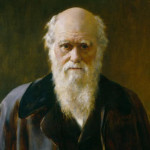Answering the 5 Objections to Proving God’s Existence
by Dr. Michael Augros
Filed under The Existence of God

On Monday, I put forward five common objections regarding attempts to prove God's existence. Today, I'll respond to each of them.
Objection 1: “Proof in general is impossible, since we must trust our brains.”
Like A.J. Ayer’s principle of verification, this idea self-destructs. Can we trust this reasoning, which leads the objector to think that we must first run our brains through a thorough certification process before we can trust our own reasoning? If so, we can reason in a trustworthy manner before any such process after all. If not, then we needn’t bother about the objector’s conclusion.
This objection is also similar to one posed by Immanuel Kant. Whether on the grounds that he cannot give a reason to believe he is awake rather than dreaming or on the grounds that he has seen The Matrix or seen Star Trek or read about phantom limbs, or read Descartes, anyone who seriously thinks that our brains and senses and reason might not be in any way trustworthy until we find a way to establish their trustworthiness independently of trusting them is beyond the help this post aims to provide. I openly and unapologetically presume an audience of readers who think they know they exist, that the world exists, and that many other specific things in it exist.
Objection 2: “Proof of god’s existence is either useless or impossible.”
I admit it is impossible to prove that there is in reality a being to whom all the divine predicates found in the Bible belong. I also concede that proving the existence of a divine being in a general sort of way, such as I have done in my book, Who Designed the Designer?, is, at least by itself, grossly inadequate for winning anyone a place among the saints. But that is a far cry from saying it is altogether useless. Such arguments could help prepare the way for faith in someone who has been hitherto struggling intellectually with the idea of god. They can help believers answer much of the ridicule of atheists. And aside from any apologetic purposes to which they might be put, they are incredibly interesting things in themselves. Were they ever so useless for compelling other people to admit their conclusions, I would still want to understand them for myself.
Objection 3: “Proof is useless in general, being incapable of moving the heart.”
See the reply to objection 2 above. Otherwise, I will add only this: A pastrami sandwich is generally useless for banging in a nail. That doesn’t mean a pastrami sandwich is generally useless.
Objection 4: “Proof is unnecessary, since god’s existence is accessible by the much surer means of religious experience.”
Anyone who truly enjoys an experiential and personal connection with god possesses a certainty about god’s existence that is superior to and independent of the kind afforded by any philosophical arguments. Possibly, to such a person, such arguments will appear dry, cold, and abstract. But in my work and through my book, I am not in the business of offering people a personal connection with god. Without denying or disdaining such a thing, I am up to something else. And the something else (up to which I am) is of more use to those who have intellectual struggles with the idea of god, or who simply wonder about the rational path to god, than any religious experience of mine could ever be.
Objection 5: “Proof is unnecessary, since god’s existence is self-evident.”
The thought presented in the objection is that of Anselm of Canterbury, or very like it. While Anselm was not exactly trying to prove god’s existence to himself, this particular thought sequence of his is one of the many (and quite different!) arguments brought under the confusing and showy label “Ontological Proof of God’s Existence”. Ever since the time of Anselm, there have been people who believed in the soundness of this thinking precisely as a proof of god’s existence or of the self-evidence of his existence. Even today there are plenty of logicians who find the argument compelling. (Would that they were right! It certainly is short and sweet.) A surprising amount of literature exists on the argument, and probably there will always be erudite people who are convinced by it. There are several important insights connected to it. Nonetheless, insofar as it is supposed to be a proof for god’s existence, or for the self-evidence of his existence, I side with those who consider it a failure.
One reason for its failure is that “the being to which no superior can be conceived” might simply be the universe, for all the argument shows. If someone says, “Ah, but an intelligent creator would be even better than that!”, we have to wonder how we know that an intelligent creator is better and also how it is even possible. Perhaps a creator is impossible; perhaps the universe is self-existent and is the supreme sum of all things, and hence, nothing truly possible and truly conceivable could be better. Or, if an intelligent creator would be superior to the universe, why not ten or fifty intelligent creators? Wouldn’t that be ten or fifty times better still? If that is not possible, or not better, the Anselmian argument does not tell us why.
And then there is that premise: if a being whose superior cannot be conceived does not exist in reality, then we can think of a superior—namely, a being whose superior cannot be conceived existing in reality. Ah, but would this really be superior, if it is in fact an impossibility? How do we know that this weird formula does not contain a hidden self-contradiction, as “greatest prime number” and “thirty-sided perfect solid” do? It seems we need to supplement the argument with quite a bit of information about what makes something better than another, and what makes a thing of some given description truly possible and conceivable rather than a mere agglomeration of words.
There are other shortcomings in the argument, but it is not worth getting into them here. Were the Anselmian argument quite sound, after all, it would just mean that my main theses in my book are entirely correct; I just took a lot more trouble than was strictly necessary to establish them. I took the long way around. The scenic route. I could live with that, were it so.
Adapted from Who Designed the Designer?: A Rediscovered Path to God's Existence (Ignatius Press, 2015) by Dr. Michael Augros. Copyright 2014, Ignatius Press. Reprinted with permission.
Related Posts
Note: Our goal is to cultivate serious and respectful dialogue. While it's OK to disagree—even encouraged!—any snarky, offensive, or off-topic comments will be deleted. Before commenting please read the Commenting Rules and Tips. If you're having trouble commenting, read the Commenting Instructions.












